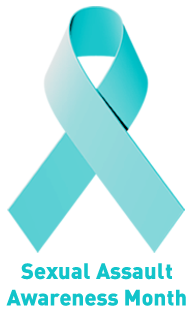Blog Post
Addressing Sexual Assault as a Community
As we recognize Sexual Assault Awareness Month, I want to take a moment to reflect on the work of the Department of Justice’s Civil Rights Division to address and prevent sexual assault in schools and communities across the country. The impact of sexual assault can reverberate throughout a community, and the response to sexual assault within a community – from a residential advisor in a college dorm to a special victim’s unit detective – has a profound and lasting impact on the health and well-being of a sexual assault survivor.
Over the past few years, the division has engaged with law enforcement, prosecutors and schools to promote a comprehensive, integrated and effective response to reports of sexual assault. In doing so, we look to assist both schools and law enforcement in their efforts to protect students and address the needs of sexual assault survivors. As more people across the country are working together to prevent and improve the response to sexual assault, questions are frequently asked about the role of colleges and universities and why sexual assault is not handled exclusively by law enforcement.
Let’s be clear. Sexual assault is a crime and must be dealt with appropriately. However, the responsibility for addressing sexual assault does not stop at law enforcement. Schools also have a civil rights obligation to respond appropriately to reports of sexual assault.
Every school is responsible for providing a safe, nondiscriminatory environment to all students. Sexual assault can interfere with or destroy a student’s ability to get an education. We have heard from survivors of sexual assault who are fearful of being in the same classroom as their attackers or are subjected to harassment and retaliation by classmates for reporting the assault. We have heard from too many students who left school after being assaulted.
Under federal civil rights laws, schools must respond to reports of sexual assault, investigate where appropriate and provide a prompt, effective and impartial resolution. It is not enough just to respond to individual complaints from survivors. To effectively address and prevent sexual assault, schools need to respond to reports from all sources, especially when assaults are repeatedly perpetrated by the same student or at the same location. Having an appropriate and effective response system in place increases student confidence and trust in their school and the ability of the school to provide for their safety.
To provide a safe and nondiscriminatory learning environment, schools must be able to administer discipline where appropriate. This administrative response serves a unique and critically important function and must happen in addition to any criminal prosecution. A school disciplinary proceeding is not, however, a criminal proceeding, and should never be viewed as an alternative to criminal prosecution. Schools do not have the authority and are not asked to determine whether alleged perpetrators of sexual assault committed a crime.
That is the role of law enforcement. And law enforcement – including campus police, local police and prosecutors – play a critical role: as one of the key responders to reports of sexual assault, and as partners with schools, victim advocates and others in the effort to protect the community from sexual assault. Indeed, the importance of communication and coordination among each of these partners in both responding to and preventing sexual assault cannot be underestimated. In our experience, when everyone works together, survivors of sexual assault are more likely to report and to receive services, exhibit greater confidence in the criminal justice and school systems and feel far better supported throughout the process.
In Missoula, Montana, to address serious shortcomings in how the University of Montana-Missoula and local law enforcement investigated and responded to sexual assaults, the division reached agreements with the university, its campus police, the city police department and the county prosecutor’s office. This first of its kind multi-pronged approach to combating sexual assault – which reaches from the campus to the courthouse door – has resulted in significant improvements in the response to sexual assault within the Missoula community. We, along with our colleagues at the Department of Education’s Office for Civil Rights, are working with leaders from across the community as they implement these agreements so that whenever sexual assaults are reported, policies and procedures are already in place; first responders and investigators are trained to handle the report appropriately; and supports and services are more readily available and better coordinated. It is with this kind of focused attention and collaboration that sexual assault can be eradicated from our communities and students can feel safe and supported in school.

Updated March 3, 2017

 U.S. Department
of Justice
U.S. Department
of Justice
